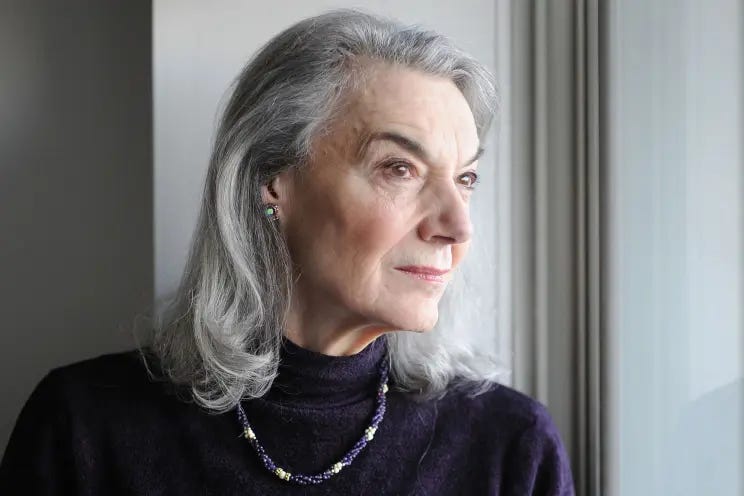Marian Seldes: I Cannot Bear To See Anyone Lost
"Maybe this is grandiose, egotistical, but I feel responsible for everyone who comes into my orbit, and I cannot bear to see anyone lost or believing what is untrue."
Q: You said you were devastated when John Houseman asked you to teach at Juilliard…
MARIAN SELDES: …Yes, I was.
Q: Why?
MARIAN SELDES: My own limited thinking. I was only forty years old, or almost, and my thinking then was that people began to teach when they could no longer do. I was thinking of dancers, who grew old and set up a classroom. I honored what they did. I took classes with them. But I was always thinking of them sadly: They were used up. It did not occur to me that teaching while I was working would not only give students a close look at a working actress who had all of their fears and goals, but it would also enhance my acting life. As I’ve told you, my students taught me every bit as much—often more—than I taught them.
Q: What do you think John Houseman saw in you that made him want you to go to Juilliard?
MARIAN SELDES: John and I talked about this. John wanted me to be to those students what I was to him: An editor, a friend, an ally, a positive enforcement. I read a lot of John’s books before he sent them to his editor. He trusted me to help him make his writing clearer. John would ask me to see plays or films with which he was associated. John knew that I would be honest, but I would be kind. John told me once that I had a gift for seeing people where they belonged as opposed to where they were. I do have that gift. I don’t know where I got it—perhaps my father—but I refuse to see people in their current situation when they come to me with a problem; when they come to me for help.
Q: Could you explain that?
MARIAN SELDES: Of course. I’ve done it with you a lot. A student at Juilliard would come to me depressed and defeated, and they would describe the person they felt they were: Poor, living in a lousy apartment, unable to be hired for professional jobs, underused at school, pimply, alone, afraid. I would first tell them that I did not see them that way. An actress very famous and very much loved for her talent always began her descriptions of herself with her acne, and I was always stunned by that. I didn’t see a case of acne before me: I saw a wonderful talent; a wonderful person.
If someone walks around thinking that they’ve lost, that they’re defeated, that will be the reality for them. I can tell someone that I don’t see them as their cruel mirror does, but I can also say that the poverty and the lousy apartment and the inability to get a job are temporary: It’s what is happening now, but it is not—oh, what do I mean?—their destiny, their future. It’s what is happening at this moment, but what I see for them, and what I want them to intend is a recognition of talent, a belief that it exists and will find a place. A belief in the future. What is now is not permanent. What is now is often not true. We lie to ourselves all the time. It’s fear.
Let’s take it away from acting and apply it to everyone, everything. A friend comes to me and claims to be an idiot, a loser, a failure at something. I don’t believe that. I am not delusional. I am not playing a game. I am terrified of what we say turning into fact. So I pull a friend away from this false belief they have. I did it last night when I walked out of the theatre and a young woman who wants to be an actress unloaded all the reasons she was afraid things would never happen for her. I was so saddened by all of this negative baggage this very young woman was hauling around and accepting as fact. Well, I had to take the time to talk to her, and we went over to Union Square, late at night, and sat and spoke. I felt compelled to disabuse her of her false beliefs. I mean, what am I here for?
Maybe this is grandiose, egotistical, but I feel responsible for everyone who comes into my orbit, and I cannot bear to see anyone lost or believing what is untrue.
»»»»»»»
Interview with James Grissom/2001



